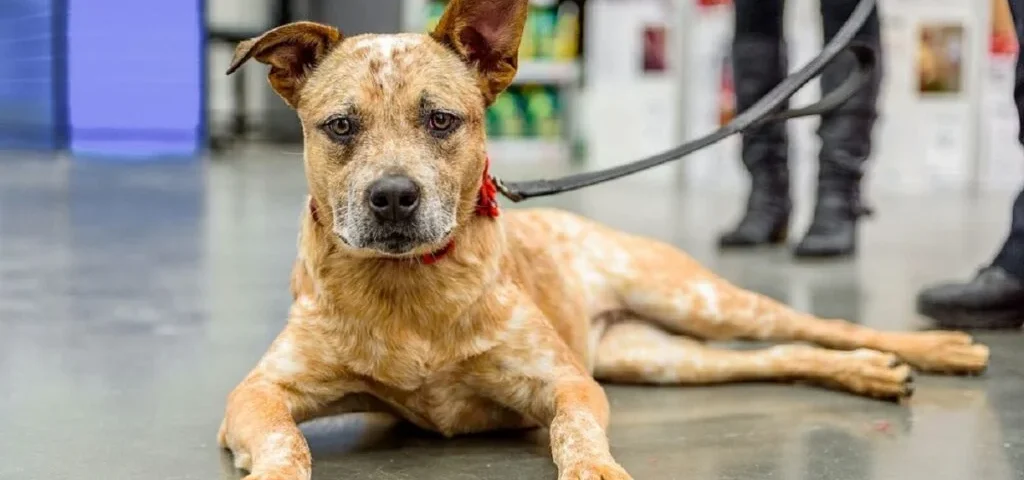
Clean Break Order – What is it and is it Right for Me?
September 14, 2024
Parental Alienation in Child Arrangements Proceedings
September 16, 2024Breaking up with someone is never easy, but it may be especially difficult emotionally when dogs are involved. Pets offer comfort and companionship, and they frequently grow to be essential members of the family. It can be extremely upsetting to consider losing both a significant other and a cherished pet. Indeed, research indicates that over 5% of people had to reschedule visiting hours with an ex, and 10% of people lost a pet as a result of a divorce.
Although determining pet custody can be an emotionally taxing process, there are things you can do to help both you and your pet adjust to the change more easily.
Pet Custody: Legal Insights and Considerations
Legally speaking, pets are considered property in the UK, which may be difficult for many pet owners to accept. A court may have to make the decision if you and your partner are unable to come to an agreement over who will keep the pet and there is no obvious proof of ownership. The person who bought the pet, who is the primary caregiver, and whose name is on the creature’s insurance and microchip are likely to be among the many considerations the court will take into account.
It’s important to remember, though, that although a court can decide who is legally the owner, it cannot impose visitation rights on the unregistered owner. As a result, reaching a mutually agreeable resolution to pet custody matters outside of court is typically preferable.
Reaching an Agreement: Putting Your Pet First
Discussing and deciding on pet custody arrangements directly with your partner is the most cordial way to proceed. It might be challenging to have these discussions, but it’s essential to remember that your pet’s welfare always comes first.
Depending on the type of pet you have, you may have to decide who gets to keep it. For instance, dogs and their owners frequently develop close relationships, so having a primary caregiver with the time and means to give them the care they need may be beneficial. If shared custody is being explored, it is crucial to create a routine and environment that the dog is accustomed to in order to avoid confusion.
However, compared to their humans, cats tend to be more bonded to their surroundings. It could be preferable for the cat to remain in the same house as one partner if that is the case. If neither spouse plans to stay in the house, you’ll need to think about things like who has more time, money, and a place where the cat may live comfortably.
Make sure that your pet’s habits and training remain consistent if you decide to go with joint custody. For example, if your dog is allowed on the sofa at one house but not the other, they may become confused and stressed out by this discrepancy.
Deciding on Custody for Multiple Pets: What to Consider
The dynamics between your pets should be considered if you own multiple animals. Partitioning the pets between couples may seem reasonable, but it’s not necessarily in their best interests. Separating the pets could be upsetting if they have a strong attachment. On the other hand, splitting them up might be the best course of action if they appear to be happier apart.
How Your Pet Might React to a Breakup—and How to Help?
Pets are extremely perceptive to environmental changes and are able to sense stress and anxiety in the house. During this period, it’s critical to keep an eye out for any indications of tension or worry in your pet. A pet may be having difficulty adjusting to the new environment if there are changes in their activity levels, hunger, or demeanor.
Try to avoid heated debates and disagreements with your pet if you want to reduce their uneasiness. Hormone diffusers, such as Feliway for cats or Adaptil for dogs, are examples of products that can help your pet feel more at ease during this trying time.
Moving with Pets: Easing the Transition
Everyone who is engaged in a move, including your pet, may experience stress. In order to keep your pet secure and less stressed during the transfer, think about leaving them with a friend or family member or in a boarding kennel. Reintroducing your pet to familiar items like toys and bedding after you’ve moved in will aid in their adjustment to the new space.
To prevent separation anxiety in dogs, it’s a good idea to gradually acclimate them to being left alone in the new home. Keeping your routine regular will also make it easier for your pet to acclimate.
Legal Essentials for Moving with Your Pet
Remember to update your pet’s microchip and pet tag with your new address if you’re relocating with them. Keeping your dog’s microchip information up to date is required by law in the UK, and it can make a big difference if your pet ever gets missing.
When Parting Ways with Your Pet Becomes Necessary
There may be situations where giving up a pet is inevitable. This can be a very traumatic experience because pets can bring happiness and emotional support through trying times. It may seem like a double blow to lose a partner as well as a cherished pet. But even if it means bidding them farewell, it’s crucial to prioritize their welfare and make sure they’re in the greatest circumstances.
The main objective is to make sure your pet survives and thrives even if your circumstances change. You and your pet may both get through this trying time if you take the time to carefully evaluate your pet’s requirements and make decisions with their best interests in mind, even though the process may be stressful.
For further advice please get in touch with our team today by calling 020 8538 0182 or +44 7857 809932, or you can email us on [email protected].
Please note these blogs are to enhance your knowledge and are not tailored advice, for specific advice please get in touch with our outstanding team.

